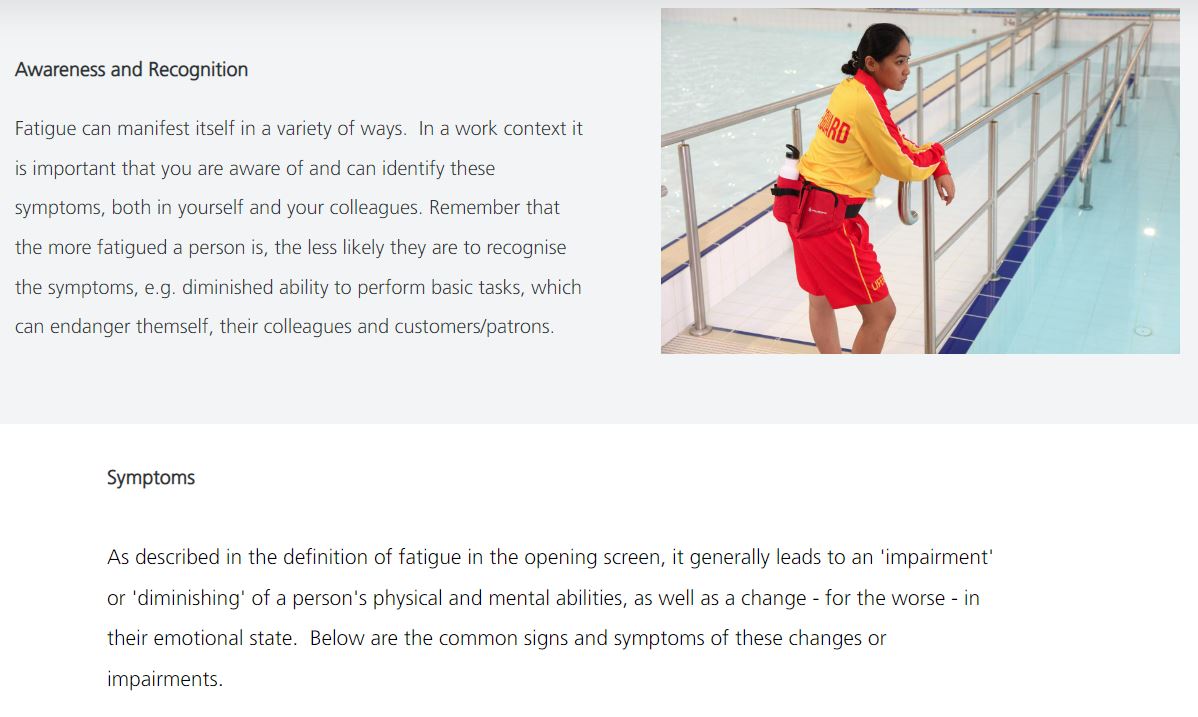Fatigue is a great inhibitor of performance, we only need to look at how impacts sporting performance or our ability to drive to appreciate its impacts. Yet, in a work context it is often overlooked or not treated as seriously as it should be.
This module looks at understanding what fatigue is and delves into the broad science underpinning our knowledge of fatigue at a body-systems level. It looks at the causes, symptoms and effects of fatigue in the context of Lifeguarding in particular. It then moves on to look at how to manage fatigue in a work-related and non-work related context and provides specific advice for organisations and individuals on the countermeasures that can be taken.
The module is divided into 2 main sections and has key knowledge check questions at the end of each section and should take approximately 25-30 minutes to complete.
The module will provide valuable learning and can contribute to a Lifeguard meeting their ongoing professional development / in-service training requirements as set out in the Guidelines for Safe Pool Operations (GSPO).
Contact your local Royal Life Saving State and Territory Member Organisations (STMOs) to find out more about these courses and availability in your local area.
Note that Royal Life Saving Society – Australia National Office is NOT a Registered Training Organisation (RTO). All nationally recognised training is delivered by Royal Life Saving STMOs.

